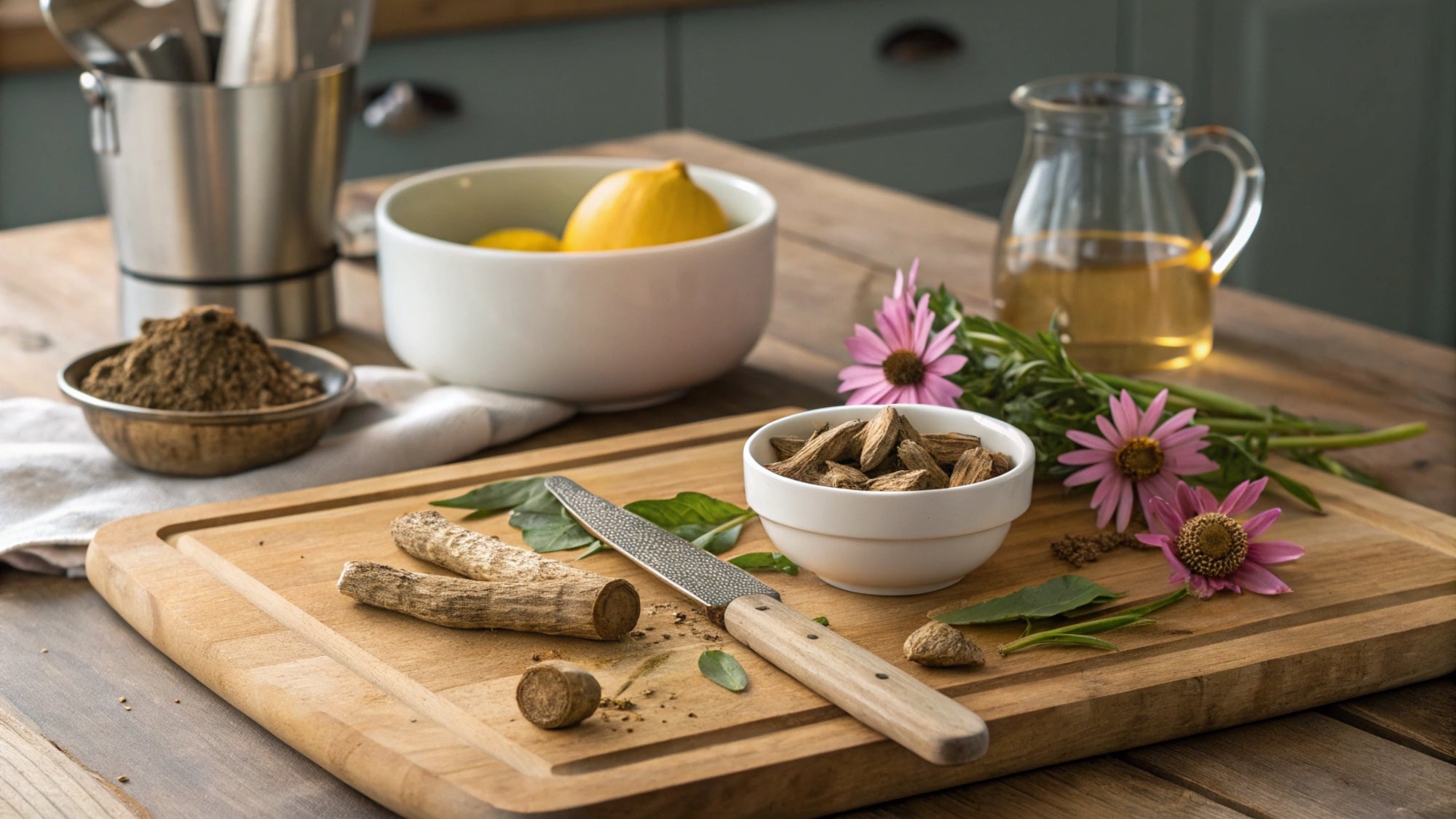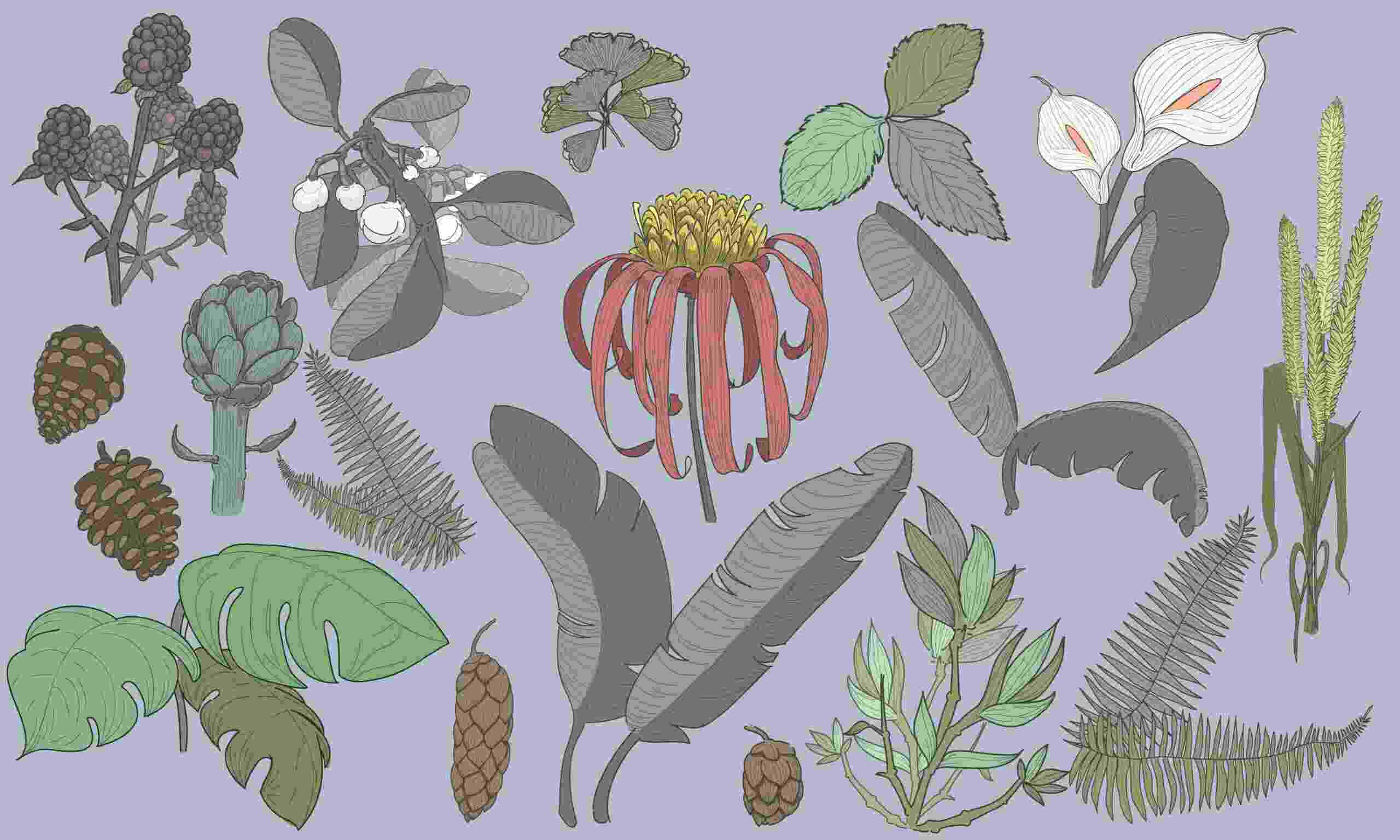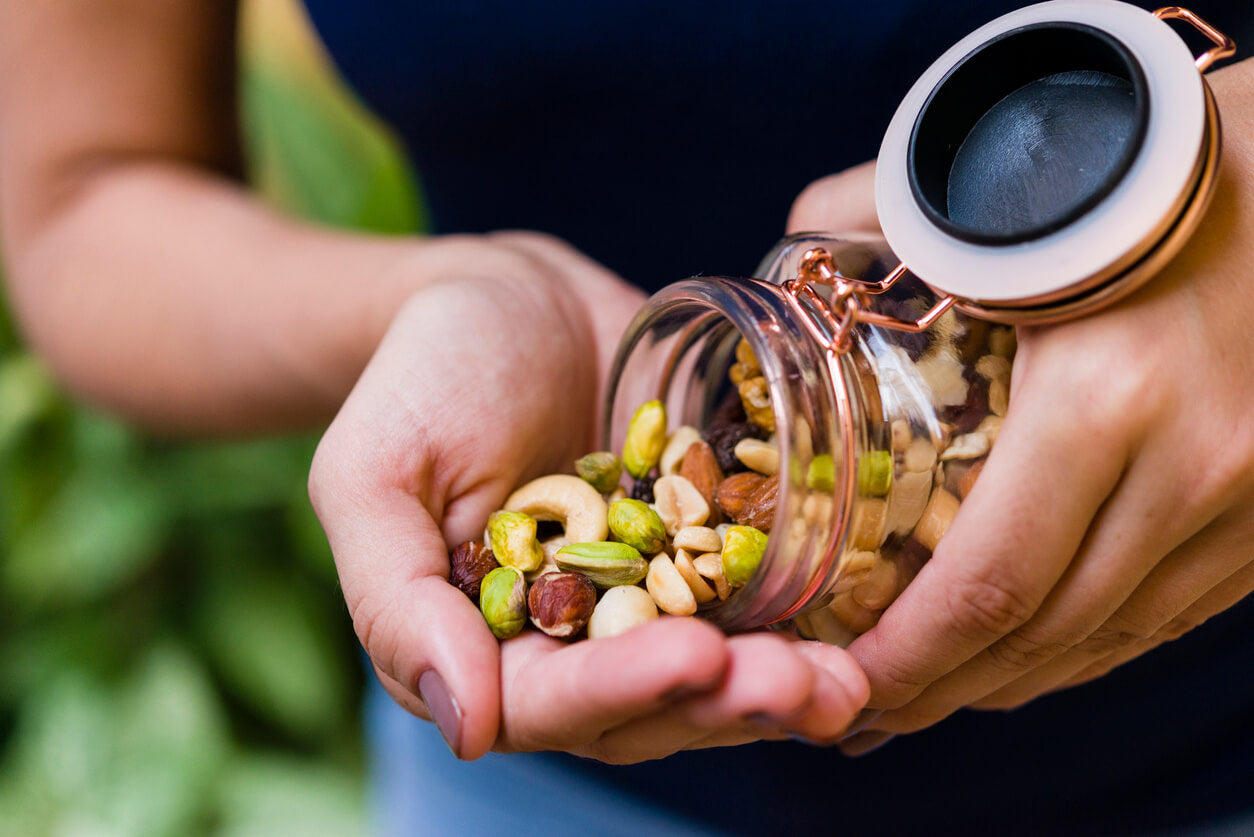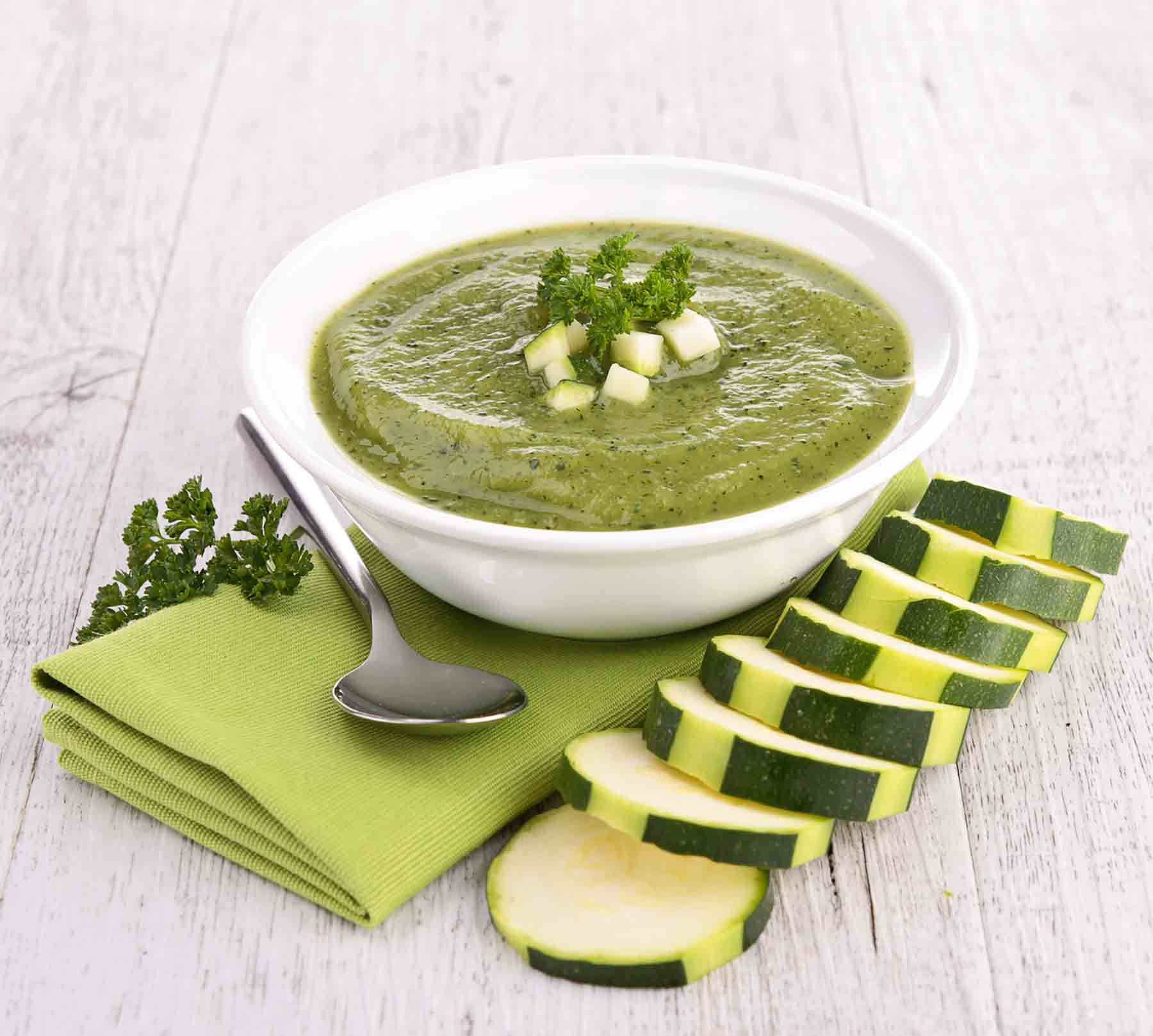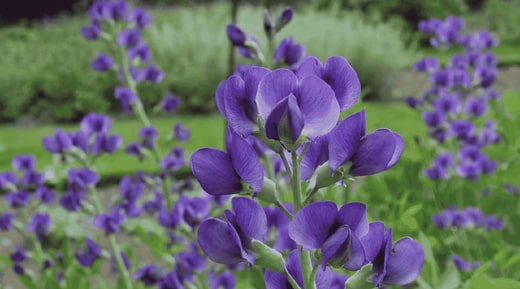
The Versatile and Historic Baptisia tinctoria - Yellow Wild Indigo
Written by Rebecca Younger, CH, CDShare
Baptisia tinctoria, aka yellow wild indigo, isn’t just another pretty face in the plant world. This humble yet dazzling herb has been showing up and showing off for centuries. Its common name, Baptisia, comes from the Greek word bapto, meaning “to dye or color”—a nod to its history as a natural dye. Sure, it’s no true indigo, but we’d argue this sunny bloom brings its own kind of magic.
Native to the Eastern U.S., yellow wild indigo is the resilient, eco-friendly overachiever we love to champion. As a member of the pea family (Fabaceae), it plays a critical role in enhancing soil health—thank you, nitrogen fixation! But it’s not just good for the earth; it’s good for your eyeballs too. Picture this: a field sprinkled with golden-yellow blooms, glowing like little beacons of botanical joy. Yeah, it’s that kind of vibe.
Whether it’s rocking a wild meadow or lending its charm to your garden, Baptisia tinctoria is here to prove that being low-maintenance doesn’t mean being low-impact. With a rich history, ecological street cred, and plenty of visual flair, this herb is ready to take its place in the spotlight. Ready to dig deeper into its benefits? Let’s get wild (indigo, that is).
Discovering the Lost Benefits of Baptisia
Once a star of early herbal medicine, baptisia was widely used by Eclectic physicians in the 1800s for its lymphatic benefits and by Mohegan healers for its medicinal qualities. Despite its decline in popularity, baptisia remains effective for supporting lymphatic health and promoting internal balance. Its mildly bitter, astringent properties give it unique versatility in wellness.
As more people turn to natural health, revisiting herbs like baptisia reveals an untapped resource for modern wellness. By reconnecting with baptisia, we honor past healers’ wisdom and discover how this forgotten gem can enhance our health journeys today.
Uses and Benefits of Baptisia Tinctoria
In recent years, there’s been renewed interest in traditional herbs, and baptisia stands out for its enduring versatility. Known for both its visual charm and therapeutic value, baptisia enriches soil, supports the immune system, and aids overall balance. Its historic uses may still hold a valuable place in promoting health and wellness today.
Immune Support
Baptisia tinctoria has earned a reputation for its immune-boosting potential, thanks to its natural ability to fortify the body’s defense mechanisms. This exceptional herb is a standout choice for seasonal wellness and immune resilience. Similarly, blue false indigo provides complementary benefits, further highlighting the value of these plants in herbal health practices. As interest in natural remedies continues to rise, Baptisia tinctoria is gaining well-deserved recognition for its role in supporting overall immune health.
Key benefits of Baptisia tinctoria for Immune Health:
- Strengthens immune defenses
- Supports the body’s natural resilience
- Adds a powerful herbal option to wellness routines
- Helps maintain overall immune function by supporting the lungs and immune response
Including baptisia in a wellness routine is a way to tap into traditional wisdom and leverage nature’s support for immune health as your first defense.
Upper Respiratory Relief
Baptisia, commonly known as wild indigo, is a versatile herb renowned for its effectiveness in relieving the discomfort associated with an irritated throat and congestion in the upper respiratory tract. False or wild indigo, historically significant in traditional medicine, were used by Native Americans and settlers for their medicinal properties and dye production. Its affinity for the inflammatory response helps to soothe irritation and and calm a sore throat, making it a valuable remedy for those suffering from colds or other respiratory issues. In addition to its primary benefits, baptisia is frequently used in combination with other immune-supporting herbs, such as echinacea and elderberry, to enhance overall immune function and resilience.
This powerhouse herb doesn’t just soothe your sniffles—it works in harmony with your body’s natural defenses to fast-track recovery and keep you feeling like your best self. Baptisia has long been a go-to in herbal medicine, lending its talents not only to respiratory support but also to calming an upset stomach and promoting a healthy body temperature. Talk about multitasking! Its versatility makes it a shining star in holistic wellness, proving that nature really does have a remedy for just about everything.
Lymphatic Health Tonic
This herb acts as a powerful lymphatic tonic, aiding in the removal of waste and toxins from the body. Wild indigo root, historically used in traditional indigenous healing practices, also contributes to these benefits. By supporting the body’s natural detoxification processes, it helps maintain a healthier system.
Key Benefits for Lymphatic Health:
- Enhances lymphatic drainage: Facilitates the movement of lymph fluid, which helps clear toxins and waste from tissues.
- Supports immune function: Boosts the body’s immune response by maintaining a clean and efficient lymphatic system.
- Aids in detoxification: Assists in the breakdown and removal of harmful substances, promoting overall wellness.
- Promotes healthy circulation: Improves blood flow, ensuring that nutrients and oxygen reach all parts of the body.
- Eases inflammation: Helps calm the inflammatory response, which can alleviate achy joints and inflamed tissue states.
This herb can also improve skin health by promoting a clearer complexion by soothing redness and skin irritation. Incorporating this herb into your routine can be a simple yet effective way to enhance your overall well-being.
Supporting Healthy Liver Function
Baptisia is a beneficial herb used as a hepatic tonic to support healthy liver function. The plant also produces seed pods which contain a pigment used for dye, although it is considered inferior to true indigo due to the complexity of extracting the dye from the flowers and seed pods. This includes several key aspects that contribute to overall liver health:
- Supports bile production: Baptisia aids in promoting proper bile production, which is essential for digestion and the elimination of toxins.
- Supports detoxification: By supporting the liver, baptisia helps in the detoxification processes, ensuring that harmful substances are efficiently removed from the body.
- Boosts metabolic processes: The herb plays a role in enhancing the liver’s ability to metabolize nutrients, contributing to better energy levels and overall wellness.
- Supports liver cell regeneration: Baptisia may assist in the regeneration of liver cells, promoting the maintenance and repair of this vital organ.
Adding Baptisia tinctoria to your wellness routine draws from traditional remedies and offers specific benefits for liver health. This herb supports detoxification processes and may enhance liver function, helping you achieve a balanced and holistic well-being.
Synergistic Herb Combinations with Baptisia
Baptisia pairs well with other herbs for a targeted boost. Here are some combinations to try:
- Echinacea: Strengthens immune support during seasonal transitions
- Elderberry: Adds free radical scavenging power and respiratory benefits
- Goldenseal: Enhances lymphatic and detox support
These herbs combined create a powerful synergy for resilience and overall wellness.
How to Use Baptisia Root
There are several ways to incorporate baptisia into your routine:
- Tinctures are the most common form, often taken in small doses.
- Capsules and Powders provide convenience, allowing for easy incorporation into daily wellness plans.
- Teas and Decoctions of the dried root can be simmered for a gentle, soothing drink.
Suggested Use: As a potent herb, it’s best to consult an herbalist for guidance on dosing. Baptisia may also combine well with other immune-supporting herbs for seasonal and winter wellness.
WishGarden Products Featuring Baptisia Root

At WishGarden, we tap into the incredible power of baptisia root to craft formulas that deliver targeted, effective support when you need it most. Here’s where this multitasking herb takes center stage:
- Kick-Ass Biotic: A go-to for immune defense, helping you stay strong and resilient during times of high exposure.
- Kick-Ass Immune: Your ally for bolstering immunity when you start to feel a bug coming on.
- Kick-Ass Sinus: Targets sinus discomfort and congestion for clear, easy breathing.
- Lymph Mover: Promotes healthy lymphatic circulation to keep your body’s detox pathways humming.
- Ear Be Well for Kids: Supports children’s ear health and comfort with gentle yet effective herbs.
- Happy Ducts: Designed to support milk flow, immune system and to promote happy, healthy ducts.
These formulas showcase baptisia’s versatility and its vital role in helping you own your health naturally.
Baptisia Plant Q&A: Uses, Safety, and Side Effects
Q: What are the medicinal uses of the baptisia plant?
Baptisia, commonly known as wild indigo, is primarily used in herbal medicine for its immune-boosting and microbial balancing properties. Traditionally, baptisia has been used to support the body during infections, particularly those involving the respiratory system, such as colds or throat discomfort. It is also believed to support lymphatic health, helping to clear out toxins and ease swollen lymph nodes.
Q: Is Baptisia edible?
No, baptisia is not considered an edible plant and should not be consumed casually or as food. The plant contains alkaloids and other compounds that can be toxic if ingested in significant amounts. While baptisia has medicinal uses when carefully prepared and dosed by trained herbalists, it is generally not safe for culinary or casual consumption.
Q: What are the side effects of Baptisia root?
Side effects of baptisia root, particularly if taken in large doses, can include nausea, vomiting, diarrhea, dizziness, and headache. baptisia is potent, and overuse or misuse can lead to more severe reactions, such as abdominal pain or respiratory distress. Because of its strength, baptisia is typically used in very small amounts, and it’s always best to work with a qualified herbalist if you’re considering this herb for medicinal purposes.
Rebecca Younger is passionate about herbs and women's health. She aspires to plant seeds of inspiration within her community about plant medicine and healthier ways of life. She studied Herbal Medicine at Herbalism Roots in Denver and is a certified Doula through the Matrona Foundation. She is the Brand Communications Specialist at WishGarden Herbs.
For educational purposes only. This information has not been evaluated by the Food and Drug Administration. This information is not intended to diagnose, treat, cure, or prevent any disease, or to sell any product.






